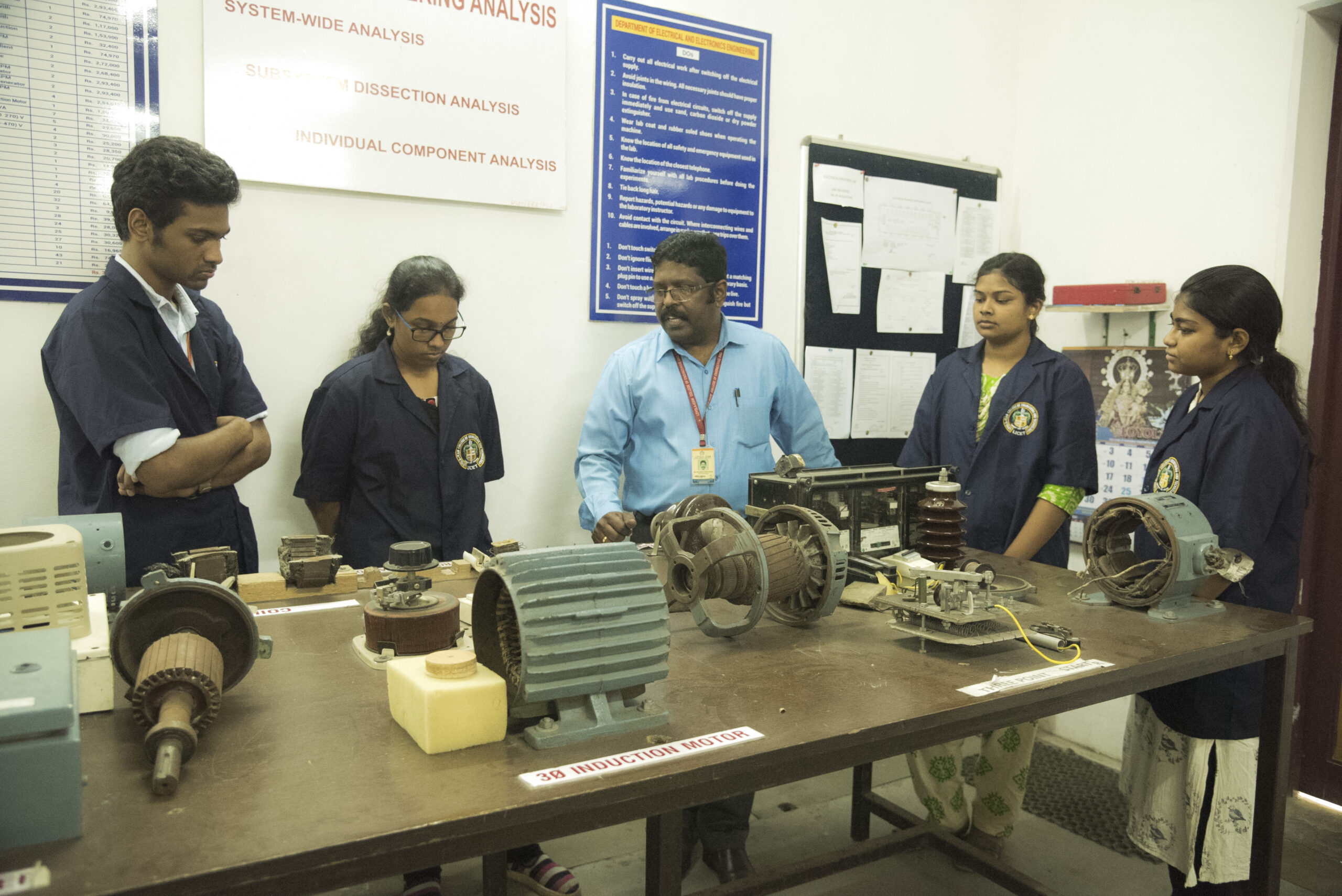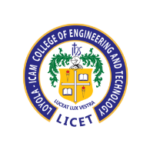Electrical and Electronics Engineering
Outcome Based Education
Program Education Objectives

Graduates are prepared to have successful career in industry, research areas and motivation for higher Education and to provide an opportunity to work in inter-disciplinary groups and to become future Entrepreneurs.
Graduates will possess necessary foundation on computational platforms and software applications in electrical engineering that will continue to develop their knowledge and skills throughout their career.
Graduates will inculcate professional ethics and instill social responsibility to work in teams for the welfare of the society and fellow countrymen.
PROGRAM OUTCOMES
PO1: Engineering Knowledge: Apply knowledge of mathematics, natural science, computing, engineering fundamentals and an engineering specialization as specified in WK1 to WK4 respectively to develop to the solution of complex engineering problems.
PO2: Problem Analysis: Identify, formulate, review research literature and analyze complex engineering problems reaching substantiated conclusions with consideration for sustainable development. (WK1 to WK4)
PO3: Design/Development of Solutions: Design creative solutions for complex engineering problems and design/develop systems/components/processes to meet identified needs with consideration for the public health and safety, whole-life cost, net zero carbon, culture, society and environment as required. (WK5)
PO4: Conduct Investigations of Complex Problems: Conduct investigations of complex engineering problems using research-based knowledge including design of experiments, modelling, analysis & interpretation of data to provide valid conclusions. (WK8).
PO5: Engineering Tool Usage: Create, select and apply appropriate techniques, resources and modern engineering & IT tools, including prediction and modelling recognizing their limitations to solve complex engineering problems. (WK2 and WK6)
PO6: The Engineer and The World: Analyze and evaluate societal and environmental aspects while solving complex engineering problems for its impact on sustainability with reference to economy, health, safety, legal framework, culture and environment.
(WK1, WK5, and WK7).
PO7: Ethics: Apply ethical principles and commit to professional ethics, human values, diversity and inclusion; adhere to national & international laws. (WK9)
PO8: Individual and Collaborative Team work: Function effectively as an individual, and as a member or leader in diverse/multi-disciplinary teams.
PO9: Communication: Communicate effectively and inclusively within the engineering community and society at large, such as being able to comprehend and write effective reports and design documentation, make effective presentations considering cultural, language, and learning differences.
PO10: Project Management and Finance: Apply knowledge and understanding of engineering management principles and economic decision-making and apply these to one’s own work, as a member and leader in a team, and to manage projects and in multidisciplinary environments.
PO11: Life-Long Learning: Recognize the need for, and have the preparation and ability for
i) independent and life-long learning ii) adaptability to new and emerging technologies and iii) critical thinking in the broadest context of technological change. (WK8)
PROGRAM sPECIFIC OUTCOMES
PSO 1: Use technical and logical skills to model, simulate and analyse the working principle, control, reliability of electric components, circuits, and systems that are forming part of power generation, transmission, and distribution.
PSO 2: Ability to apply the fundamental engineering concepts to solve real-time problems using engineering software tools such as Electrical modelling software, Open-source alternatives, Virtual labs, RT Lab, and suitable algorithms
PSO 3:Adapt to emerging technologies like sustainable energy, electric mobility, and industrial automation to stay current with emerging trends in the industry




